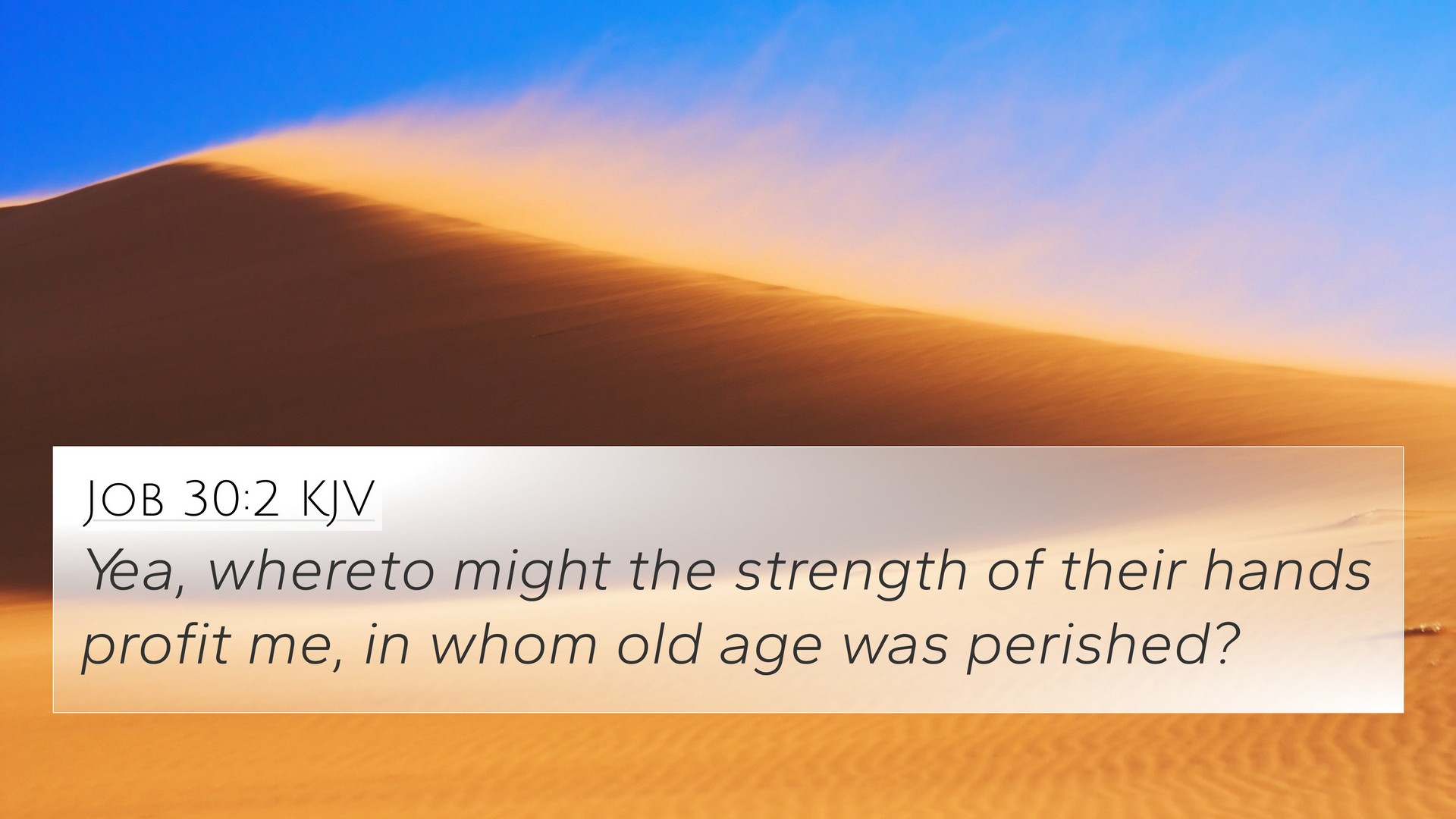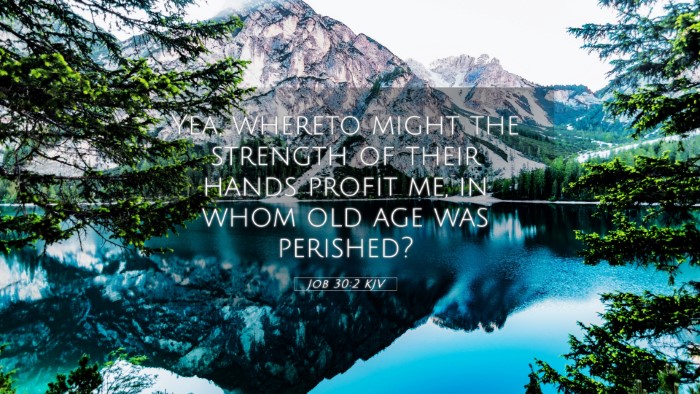Understanding Job 30:2
Job 30:2 reads: "And where are now their lords? They were not considered as anything in their time."
Summary of Job 30:2
In Job 30:2, Job laments the downfall from his previous status and reflects on the scorn directed towards him by those less esteemed. This verse is pivotal as it illustrates Job’s sense of abandonment and disdain from both God and his peers, highlighting how drastically his situation has changed.
Commentary Insights
-
Matthew Henry’s Commentary: Henry highlights the deep sorrow that Job experiences, emphasizing that those who had once looked up to him are now in positions of authority, casting him aside. His lament serves as an expression of the irreverence towards the once respected individuals, now brought low.
-
Albert Barnes’ Notes: Barnes points to the juxtaposition of Job’s former glory and his current misery. He elaborates on the social dynamics at play, suggesting that Job recognizes the fickleness of human esteem and power, asserting that the "lords" he refers to were unaware of their impending downfall as well.
-
Adam Clarke’s Commentary: Clarke focuses on the 'lords' representing the arrogant and powerful. He notes that Job's rhetorical question implies a clear distinction between true wealth and the transient nature of honor among men. He sees the acknowledgment of those he once respected now turned against him, calling attention to the theme of reversal that permeates his discourses.
Key Themes in Job 30:2
- Human Suffering: Job's lament articulates deep feelings of suffering and abandonment.
- Reversal of Fortunes: The theme of fortunes shifting dramatically is central to Job's plight.
- Cultural Commentary: The verse reflects the societal values regarding honor and status.
Cross-References and Thematic Connections
To fully grasp the depth of Job 30:2, we can find connections between this verse and several others throughout the Bible. Here are some important cross-references:
- Job 1:1-3: Job's initial wealth and status.
- Proverbs 16:18: "Pride goes before destruction, and a haughty spirit before a fall."
- Psalm 37:35-36: Observing the fate of the wicked and their eventual demise.
- Ecclesiastes 3:19: The common end shared by all, regardless of status.
- Matthew 19:30: "But many who are first will be last, and the last first."
- Isaiah 40:23: Discussing God’s sovereignty over rulers.
- 1 Peter 5:6: Encouraging humility before exaltation by God.
Using Cross-Referencing Tools
Understanding Job 30:2 alongside these cross-references allows for a more comprehensive insight into the motifs of suffering, pride, and divine justice. Employing tools for Bible cross-referencing such as a Bible concordance or cross-reference Bible study guides can enhance your exploration.
Conclusion
Job 30:2 is a powerful reminder of the transient nature of honor and the stark reality of suffering. By linking this verse with other biblical texts, one can delve into deeper theological implications and discover the enduring truths about human existence and divine justice.


